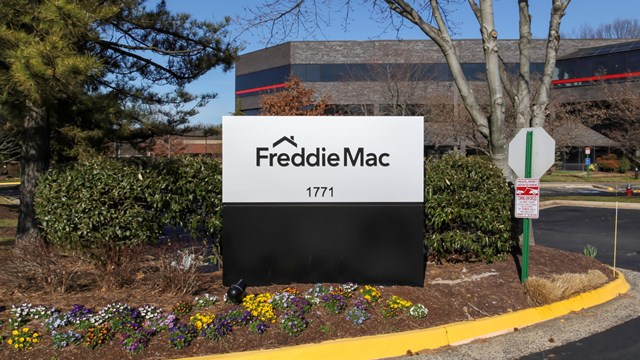Picture this: the mom-and-pop dry cleaner that has inhabited your building's ground floor retail space for years is moving out and a broker tells you that an upscale clothier wants the space for triple the rent. Or perhaps one of the many cellular companies in town wants to rent your roof for antennae placement. Maybe your adjacent parking garage is changing hands and the new contract will yield twice the income of the old one.
Any co-op board would be salivating at this point, visions of new elevators and lobby upgrades dancing in their heads. Then along comes the perennial bearer of bad news, the Internal Revenue Service, to tell you that these lucrative commercial deals violate the 80/20 rule. Before you throw out the paint chips and carpet samples, there are ways to welcome the increased income without penalties.
Section 216 of the Internal Revenue Code, which contains provisions related to the 80/20 rule, grants co-op owners certain tax deductions, provided that at least 80 percent of a housing cooperative's income comes from shareholders. Section 528 of the IRC grants similar rights, and demands the same responsibilities, from condo owners. When Congress passed the original form of the law in 1942, they wanted to give urban dwellers the same rights as suburban homeowners.
"The problem," says Gerald Marsden, CPA, a partner at the Manhattan accounting firm of Eisner & Lubin, LLP, "comes largely from the rental of commercial tenants such as garages or stores. The 80 percent appears to have been an arbitrary number. [Congress] didn't want commercial income hiding."
"The government is concerned," says Carl Cesarano, founder of Manhattan accounting firm Cesarano & Khan, CPAs PC. "Are you running a real estate company, or a true cooperative?" In general, any income from shareholders, including maintenance and things like move-in and sublet fees, are "good" income; the more there is, the better. Anything from an outside source is "bad" income - and must therefore be offset by a larger proportion of "good" income.
Failure to maintain the 80/20 balance carries a stiff penalty. If a co-op goes over by even $1, they lose their tax status for the year. Owners would lose the right to deduct mortgage interest and property taxes. And this, according to Mark Shernicoff, CPA, with Manhattan-based Zucker & Shernicoff, applies to the interest on either the co-op's mortgage or similar loan and the interest on the tenant stockholder's share loan. In addition, anyone selling an apartment in that year would lose the exclusion from gain benefit, in which the first $500,000 of a home sale for a married couple filing jointly is tax exempt. According to Shernicoff, a single person would get a $250,000 benefit, which only applies to the sale of a principal residence.
According to Cesarano, "What you really have to do is to keep analyzing the income streams throughout the year," adding that careful monitoring means that a board can act before outside income tips the balance.
There are many scenarios in which a building is eligible for outside income that exceeds the 80/20 rule. For example, commercial real estate prices have inflated in recent years. Many buildings now have ground floor or garage space that is "too valuable." Faith Hope Consolo is vice chairman of Garrick-Aug Worldwide, Inc., a major commercial real estate brokerage firm. She suggests several solutions. "In the first place, the tenant pays the broker's fee directly," says Consolo. This reduces the bad income by several thousand dollars. "Next, let's say the space is worth $100 per square foot. We can reduce the rent, and have the tenant commit the balance to making capital improvements to the building. The building gets a better tenant who's committed to improving the space."
According to Attorney Marc Luxemburg of Snow Becker Krauss, P.C., an 80/20 situation typically arises in cooperatives that are situated on commercial avenues (e.g Lexington Avenue, Broadway, Queens Boulevard, Jerome Avenue) or major commercial streets (e.g 86th Street or many of the streets in downtown Brooklyn or Manhattan) where the area is zoned for commercial purposes, and ground floor spaces are configured for commercial or garage uses.
The rent received from the commercial stores or garage is not deemed to be income derived from the tenant-shareholders, unless, with respect to a garage, the income is received directly from a tenant-shareholder.
There is a popular misconception that the 80/20 problem is a "Park Avenue" problem, and only applies to the super wealthy. Even a moment's reflection reveals that this perception is not correct since the most expensive residential areas (e.g. Park Avenue, Fifth Avenue, Central Park West) are not commercially zoned, and residents of those avenues are not affected by this problem.
What has happened as a result of recent economic conditions is that the rental value of the stores and garage has escalated enormously over the last several years, as have real estate values in general. If a cooperative has continued to receive market rents from its commercial space, it is likely under current economic conditions to find its commercial income bumping up against the 20 percent level, if not substantially exceeding it, says Luxemburg.
"The new tenant can also pay an up-front or an end-of-lease balloon payment that would not go into the rent stream," Consolo adds. This method would work with any contractor. For example, the garage operator is about to sign a ten-year lease. They can pay a large payment in the beginning or end of the contract, reducing the monthly rental income over the course of the lease.
"You can take a big payment up front," says Marsden, "and then take one bad year. You can change the fiscal year and stay on that schedule for ten years without asking anyone's permission." Basically, if the balloon payment is received in January, the corporation declares a short tax year, and reports for just one month. Ideally, everyone would be forewarned not to sell his or her unit during that time period. Then, shareholders would lose their tax deductions only for that month. For the next ten years, the corporation would be bound to a fiscal year ending January 31. At this time, they could change the end of fiscal year again.
Cesarano adds another solution. "If you have the opportunity to defer recognizing the income using accrual accounting methods, that may work. It's all on a case-by-case basis. Usually it doesn't create a tax liability because the building has enough depreciation expenses." Cesarano serves a building with a significant number of cellular antennae. "We took the payment up front, and then trickled it in over the life of the agreement."
Cesarano knows a building where the sponsor rents out several units. In order to avoid violating 80/20, the offering plan stated that the sponsor could collect market rents, but only paid the building an amount not in excess of 20 percent. The plan is hardly ideal. "It's hard to turn down revenue. The infrastructure is always in need of repairs," he says.
However, Shernicoff points out that Section 467 of the code finalized in May 1999 invalidated the use of lump sum payments and short tax years that many co-ops have utilized in the past to get around the 80/20 problem.
Of course, when "bad" income rises, a building can always raise "good" income. The simplest way, arguably, is to raise maintenance fees. Of course, many shareholders may be opposed to paying more out of pocket. This would work best in buildings where the maintenance is currently below market prices. "This can be an opportunity to boost the reserve fund," says Cesarano. "Raising maintenance fees could be a huge winner if you use it to fund major projects."
Another strategy to boost good income involves issuing shares to the commercial space. This is complicated, although possible, and has pros and cons. "If you have the right to convert commercial space into residential and the cost is not prohibitive, you can get a ruling to sell shares to the commercial space holder," says Marsden. "You get a lawyer to petition the IRS to convert the space to residential. You need to show plans for the conversion, for example, costs for building kitchen and bathroom facilities etc. If the zoning allows, they will grant the petition. You don't actually do the work, just allocate and sell the shares."
One problem with this scenario is that if the commercial space is owned by an interest other than the co-op, the commercial tenant ends up with a lot of shares - and a lot of voting power on the board until he or she sells those shares. The upside is that the income is now "good" income.
An excellent way to increase good income is through submetering. In this scenario, the housing corporation buys some or all of the building's utilities, and then collects from the individual shareholders. This can include cable television, broadband access, electricity, and phone lines. In the case of a garage, space can also be leased by the building and then sublet to shareholders.
Many in the co-op industry find the 80/20 rule outdated. However, after 60 years on the books, it doesn't seem to be going anywhere soon. "Senator [Patrick] Moynihan tried to get the law changed several times and nothing ever happened," says Marsden. "It's a New York issue, so no one cares about this. The rest of the country is all condominiums." And nowhere is commercial space as valuable as New York City.
With many options available, there's no reason to turn down outside income - and really no such thing as "bad" money. You can choose to raise good income, or structure a way to keep outside income within the limits of the law. Either way, there are ample opportunities to improve a building's financial condition and still follow the rules. The process is technical, and you'll need your building's attorney and accounting professionals to guide your board through the process, but by planning well and keeping a sharp eye on the balance, you sock away some extra income for a rainy day and still avoid painful tax consequences.







Leave a Comment